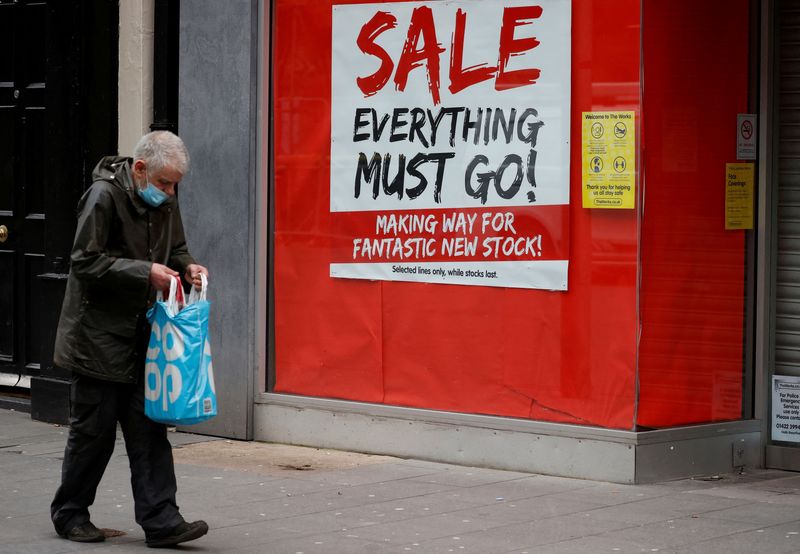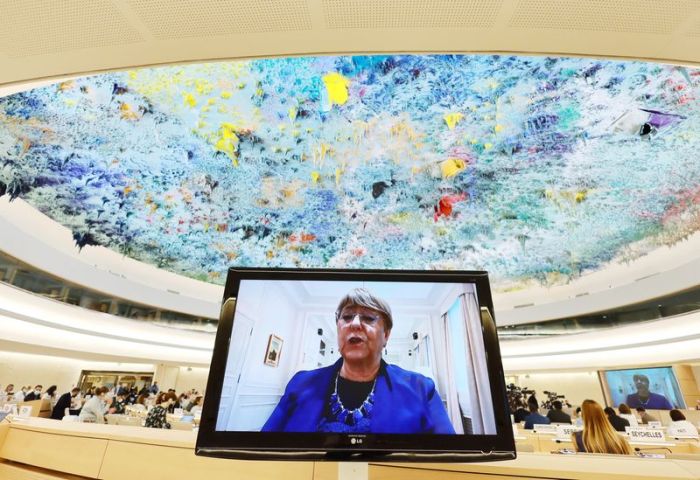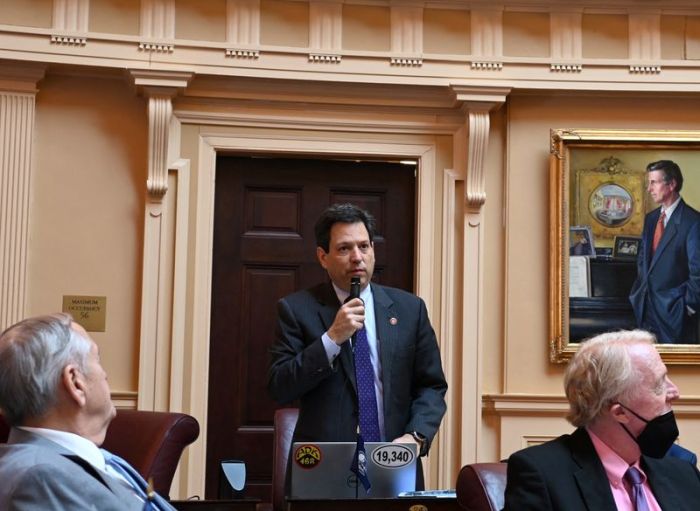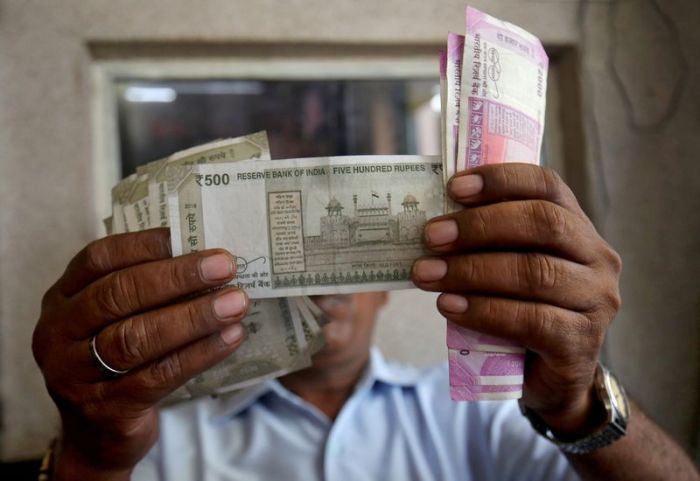LONDON (Reuters) -Britain’s economy unexpectedly shrank in March, marking a weak end to the first quarter of a year when the risk of recession is looming and increasing pressure on the government to offer more support to inflation-hit households.
Gross domestic product fell 0.1% from February, hurt by a slump in car sales due to supply-chain problems, the Office for National Statistics said.
That left growth in the first three months at 0.8%, weaker than the Bank of England’s 0.9% forecast and the 1.0% median forecast by economists polled by Reuters.
The January-March period is likely to mark a high point for the year, with households facing their biggest squeeze on disposable income in decades as the policy dilemma facing a BoE intent on keeping a lid on inflation – while not choking off prospects for growth altogether – deepens.
Last week, the central bank forecast inflation will surpass 10% in the final quarter of 2022, up from 7% in March, already more than three times its 2% target.
“The economy had less momentum than we thought even before the full hit from the cost of living crisis has been felt,” Paul Dales, chief UK economist at Capital Economics, said. “The risk of recession has just risen.”
Sterling weakened against the dollar on Thursday while British government bond yields slumped to their lowest in nearly two months.
PRESSURE FOR MORE SUPPORT
The government is under pressure to provide more support to households. Finance minister Rishi Sunak said that, while the recovery was being disrupted by Russia’s invasion of Ukraine, he was open to offering more help, with regulated energy tariffs expected to rise by around 40% more in October.
Britain’s economy outpaced the United States and the euro zone in the first quarter, although this partly reflected an earlier start and end to the Omicron wave of COVID-19, and differences in the timing of energy price rises.
The International Monetary Fund predicts Britain will see the weakest growth and highest inflation among major advanced economies next year.
Much of Britain’s recovery reflects greater spending on healthcare – up 11% since the start of the pandemic – while consumer services remain 7% below their pre-pandemic level.
“Given that inflation looks set to remain red-hot for some time, how the consumer fares will remain the key question for those monitoring the UK economy for some time to come,” said Sandra Horsfield, an economist at Investec.
In March alone, sales of cars and motor vehicles slumped by 15.1%, leading to a 0.2% fall in overall services output.
The fall in GDP would have been even greater had it not been for an unusually strong 1.7% rise in construction output, reflecting repair work after winter storms in February.
February’s GDP growth was revised down to zero from 0.1%.
The BoE worries that slower growth will not be enough on its own to bring inflation back to its 2% target, and that the leap in inflation will get embedded in longer-term pricing plans and pay settlements.
It has therefore raised interest rates four times since December to tackle inflation pressures, and financial markets expect rates to rise to 2% by the end of this year from 1% now.
Wage pressures remained strong in April although hiring slowed, according to data overnight from recruiters, while house prices rose by the most since June, despite a big overall fall in consumer sentiment.
The world’s fifth-biggest economy shrank by 9.3% in 2020 and grew by 7.4% in 2021, the sharpest COVID swing in output of any G7 economy. Overall GDP, on a monthly basis, is now 1.2% above its pre-COVID level of February 2020.
(Reporting by David Milliken and William Schomberg; Editing by John Stonestreet)





















